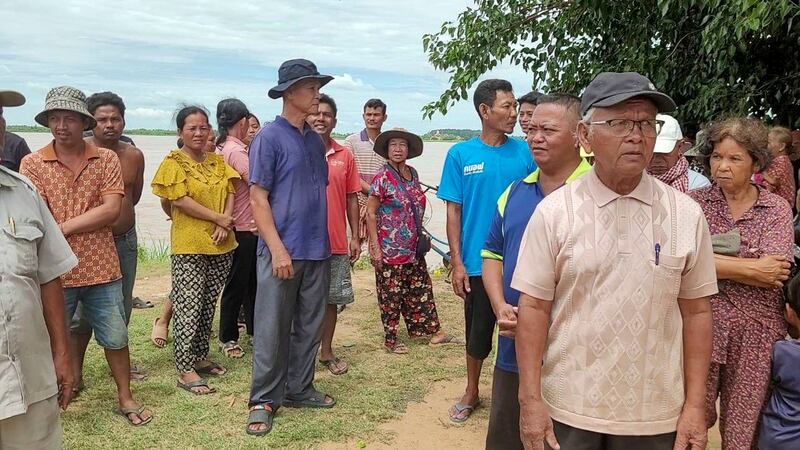The Cambodian government has established a committee to monitor sand-dredging – and to take legal action against illegal dredging – after protests from residents along the Mekong River.
Cambodia exports the sand to Singapore and other countries for use in construction projects, and the dredging has sparked frequent protests throughout the country over the last 20 years.
Several hundred people gathered on a riverbank in Prey Veng province on Aug. 28 to urge authorities to stop the scooping up sand from the riverbed, saying it has caused erosion and landslides that have damaged farmland and homes.
“The river bank is broken,” said Chhoeun Yun of Phum Thmey village. “There are many sand dredgers daily. People are not able to stop them and provincial authorities don’t pay attention to the impact.”
So far, land and homes belonging to five families have fallen into the river, ruining local crops like bananas and mangoes, the villagers said.
On Aug. 31, government officials in Phnom Penh established a Sand Resources Management Committee to monitor the exploitation of sand resources.

U.N. data showed that Cambodia exported $752 million in sand to Singapore between 2009 and 2017. The island nation has been a top destination for the building material, which is used in concrete and in other construction materials.
The government first banned sand dredging in 2013. But a report from the Cambodian Center for Human Rights in 2016 found the government was continuing to supply licenses to sand miners.
Another resident of Phum Thmey, Voeun Visak, said people are worried that the riverbank will continue to collapse, eating up more farmland and destroying more homes.
“It is difficult to do business because I am afraid of landslides,” Voeun Visak said. “I have requested the local authorities to help but they have never come here to see.”
RFA could not reach Prey Veng provincial director of mines and energy Chea Kakada and Peam Ro district governor Keo Pisey for comment on Sept. 3.
However, Keo Pisey told local journalists after the Aug. 28 protest that the sand dredging company has a signed agreement with provincial authorities to allow for the activity in a defined area of the Mekong.
Translated by Yun Samean. Edited by Matt Reed.
